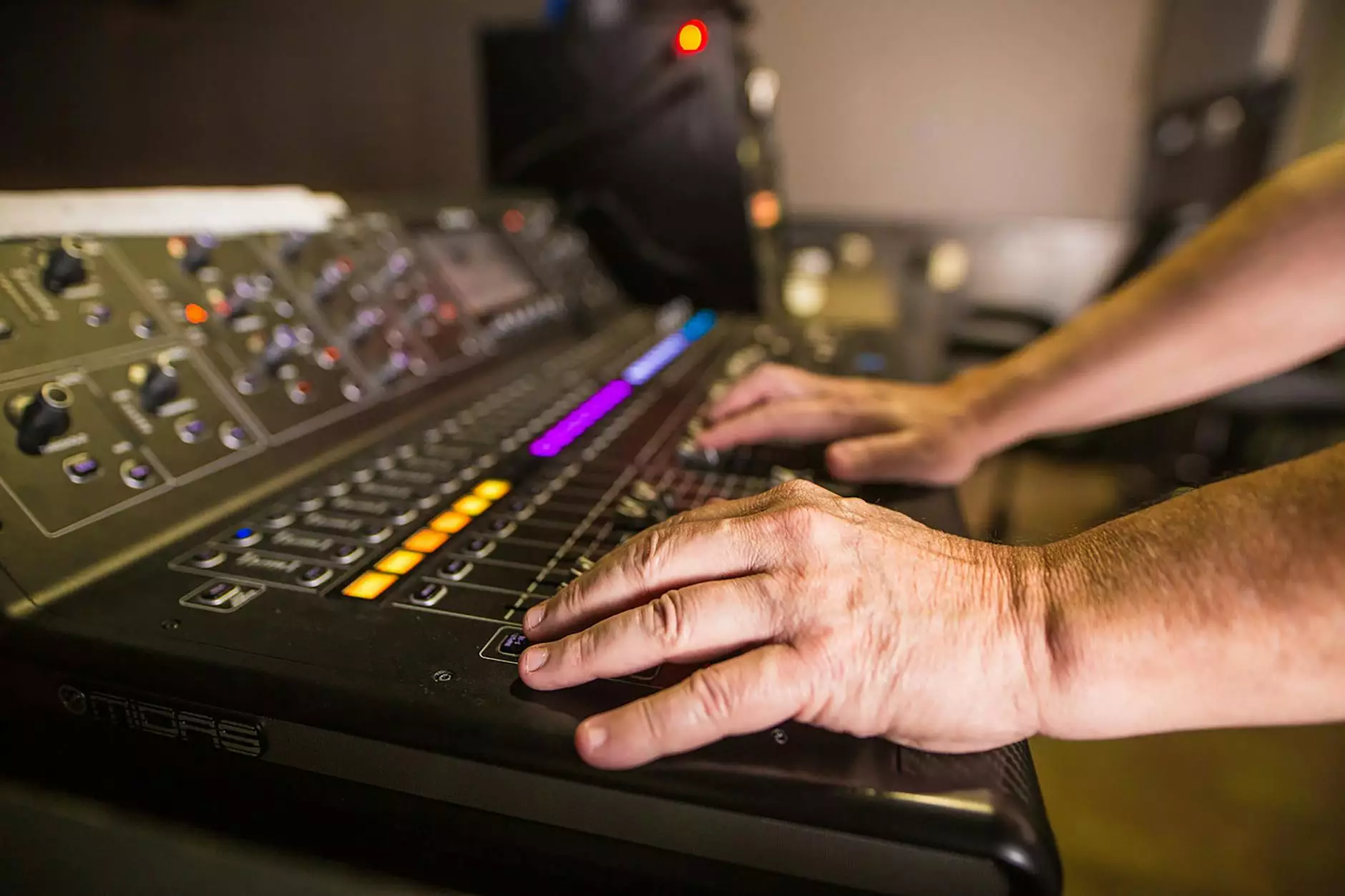Unlocking Success with Professional Game and Audio Design Engineering

Game development outsourcing is an ever-evolving industry fueled by innovation, creativity, and technology. As companies seek to enhance their game titles and audio experiences, the demand for skilled professionals such as game and audio design engineers has surged. This article delves deep into the intricacies of game and audio design engineering, showcasing the pivotal role these experts play in game development, and highlighting the exceptional offerings of Pingel Studio.
Understanding the Role of a Game and Audio Design Engineer
A game and audio design engineer wears many hats. This multifaceted role encompasses various responsibilities aimed at creating immersive gaming experiences. Primarily, it involves:
- Game Audio Design: Engineers create sound effects, ambient sounds, and backgrounds that enhance the gaming environment.
- Composition: They compose music that complements the game's narrative and gameplay mechanics.
- Technical Implementation: Integrating audio into the game engine, ensuring compatibility, and optimizing performance.
- Collaboration: Working alongside game designers, artists, and programmers to align audio elements with visual cues.
The symbiotic relationship between sound and gameplay is critical. Audio effects can drastically impact a player's experience, from the thrill of hearing a monster roar to the satisfaction of a well-timed musical cue. As a result, hiring a proficient game and audio design engineer can significantly elevate the quality of a game.
The Importance of Audio in Game Development
In recent years, the industry has underscored the importance of audio in enhancing user engagement. Good audio design does not only serve aesthetic purposes; it plays a pivotal role in gameplay mechanics. Consider the following aspects:
- Immersion: Quality sound design immerses players in the game world, making them feel as if they are part of a living, breathing ecosystem.
- Feedback: Sound cues provide essential feedback to the player, indicating actions, successes, and failures straightforwardly and effectively.
- Emotion: Music and sound effects evoke emotions that can drastically alter a player’s overall experience, making the game memorable.
- World-Building: Unique audio elements contribute significantly to world-building, creating distinct atmospheres that can differentiate one game from another.
Key Skills and Tools for Game and Audio Design Engineers
To excel in the role of a game and audio design engineer, one must possess a combination of technical and creative skills. Here are some essential skills and tools that define a competent engineer:
Essential Skills
- Technical Proficiency: Familiarity with audio editing software such as Adobe Audition, Pro Tools, and Ableton Live is crucial.
- Sound Design Techniques: Knowledge of sound design principles, including layering, modulation, and synthesis.
- Musical Knowledge: Understanding music theory, composition, and arrangement to create compelling soundtracks.
- Problem-Solving: Ability to troubleshoot technical issues arising in game engines or during implementation.
- Communication: Effectively conveying ideas and collaborating with other team members to ensure cohesive development.
Popular Tools and Software
The right tools can make the job of a game and audio design engineer significantly smoother. Here is a list of commonly used software in the industry:
- FMOD: A widely-used sound effects engine that facilitates dynamic audio implementation and management.
- Wwise: Another popular audio middleware tool that allows for adaptive audio scaling depending on gameplay dynamics.
- Unity & Unreal Engine: These game engines provide integrated audio tools for sound implementation in the development process.
- Reaper: A digital audio workstation known for its versatility and customizability, perfect for audio editing and mixing.
The Process of Game Development Outsourcing
Outsourcing game development has become a strategic move for many companies, allowing them to access specialized talent while optimizing costs. The process generally follows these steps:
Step 1: Concept Development
Establishing a clear vision for the game is paramount. This phase involves brainstorming ideas and outlining the gameplay mechanics, setting the stage for effective audio and visual alignment.
Step 2: Team Assembly
Once the vision is solidified, assembling a talented team is the next step. This team may include:
- Game Designers
- Artists and Animators
- Game and Audio Design Engineers
- Programmers
Step 3: Prototyping
The development team creates a prototype to test gameplay mechanics and design elements. Quality audio is integrated at this stage to assess its impact on user engagement.
Step 4: Production
In this phase, the game takes shape. Assets are created, including sound effects and music. The contributions from the game and audio design engineers are crucial for ensuring a harmonized experience.
Step 5: Quality Assurance
The game undergoes rigorous testing to eliminate bugs and refine gameplay. Sound engineers may adjust audio elements based on feedback during this phase to enhance the overall experience.
Step 6: Launch
Finally, the game is launched. The exciting culmination of months of hard work, collaborative efforts, and creative innovations comes to fruition.
Why Choose Pingel Studio for Game Development Outsourcing?
Among the many game development outsourcing companies, Pingel Studio stands out for several reasons:
Expertise in Game and Audio Design
With a team of seasoned game and audio design engineers, Pingel Studio combines artistic vision with technical expertise, ensuring high-quality audio experiences that resonate with players.
Quality Assurance
Pingel Studio guarantees an unwavering commitment to quality. Rigorous testing processes are in place to ensure that every sound element is perfectly crafted and integrated into the gameplay.
Tailored Solutions
Understanding that each project is unique, Pingel Studio offers customized solutions that match client needs, preferences, and budgets.
Efficient Communication
A key to successful outsourcing is effective communication. Pingel Studio prioritizes transparent communication channels, keeping clients informed throughout the development process.
Future Trends in Game and Audio Design Engineering
As technology advances, so too do the capabilities within game and audio design. Here are some emerging trends to watch:
- Artificial Intelligence: AI is set to revolutionize game audio, enabling adaptive soundscapes and procedural audio generation that responds to player actions.
- Virtual and Augmented Reality: Audio design for VR and AR demands new techniques, offering immersive auditory experiences that enhance realism.
- Spatial Audio: Technologies such as Dolby Atmos are changing the landscape of audio, allowing sound to be experienced in a three-dimensional space.
- Interactive Music Systems: Music that changes dynamically based on gameplay events may become more common, resulting in tailored soundtracks for players.
Conclusion
In a competitive industry, the role of a game and audio design engineer cannot be overstated. Their skills and expertise are crucial in creating engaging, immersive game experiences. Partnering with a reputable outsourcing company like Pingel Studio enables developers to harness this expertise to elevate their projects, ensuring that both gameplay and auditory elements are finely tuned for maximum impact.
The future of game development looks promising, with exciting innovations on the horizon. By leveraging the talents of skilled game and audio design engineers, your game can not only succeed but flourish in the dynamic world of interactive entertainment.









